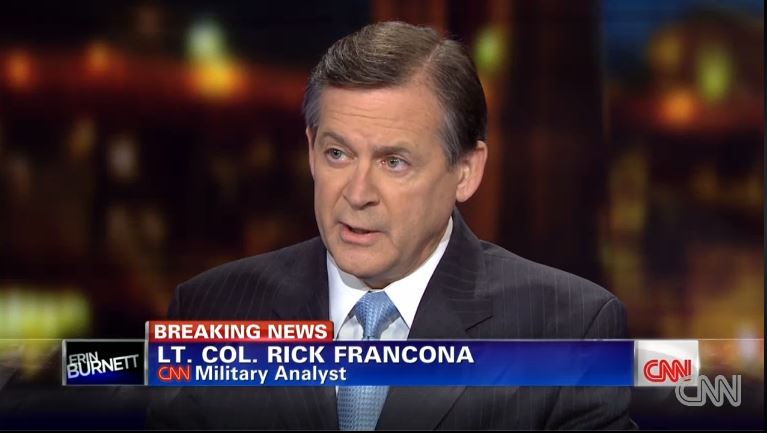Navy corpsman Mike Dolnick has seen the results of war, and helped save the lives of many: Americans, United Nations military, Afghan Army soldiers, civilians, and even the enemy--the Taliban.
Local fire paramedic Mike Dolnick has spent a tour of duty with the Navy in Kandahar and another in the Navy’s receiving hospital (Langstuhl) in Germany. An E5 Petty Officer 2nd Class, Dolnick takes pride in his work as a Trauma Team Corpsman because he loves what he does.
Mike Dolnick grew up in Martin County, Florida, enlisted with the U.S. Army in 1983, and remained active from 1984 to 1986. Later he became a part of the National Guard (1986—1987). After 9/11 in 2001 Dolnick reenlisted with the Navy, becoming a Corpsman (2003).
In Germany, his team managed care for U.S. military wounded until they could be returned to the States. Injured soldiers were sent in to the hospital from both Iraq and Afghanistan. Landstuhl Regional Medical Center is the largest American hospital outside the United States.
In 2013, Dolnick was prepared for deployment overseas to Afghanistan. No mental preparation (counseling) for what was to be expected was provided. Kandahar base had regular shootings and shellings; it was infiltrated with the enemy through the Afghan army. As a result, those on base carried a weapon at all times to protect themselves. The enemy’s purpose was to destroy the hospital. If this had been successful, NATO would have been minimalized as a military force.
NATO had four trauma teams at Kandahar. Each team worked 24 hours on and 72 hours off. Each team consisted of one doctor, two nurses and two corpsmen. Dolnick was one of the corpsmen.
Similar to the old television series MASH, a group of the injured would arrive together—three to four amputations at a time, some soldiers with two legs and two arms missing, requiring resuscitations, intubation, catheterizations, whole blood product infusions, etc… Extra trauma teams would need to be spun up. Each team additionally came with its own Afghan interpreter.
The wounded arrived with missing eyes, gunshots, burns, and shrapnel embedded in their bodies. Most spoke English, but some did not, hailing from several different United Nations countries: Romania, Ukraine, Slovakia, Britain, Belgium, Australia, etc..
If a soldier arrived with a pulse, he had a 98% chance of survival before getting into the operating room.
The military, both U.S. and Afghan Army, were issued ballistics eyewear. Few if any Americans received eye injuries because of this gear. Afghans however, found the eyewear unattractive. Those who wore it were made fun of. Dolnick states that he saw many Afghanis lose their sight because of this cultural problem.
Kandahar’s hospital had walking bloodlines--those willing to donate blood as needed.
It also had a blast wall and military police.
The enemy too gets injured. The Taliban were brought in. Under the Geneva Convention, noncombatants had to be given medical help as well. “They would look at me like they wanted to kill me,” Dolnick states, “even though I’m taking care of them.” Medical personnel turned in their weapons at the door prior to coming on duty. No weapon could be within reach of the enemy; even though he was injured, he was still considered dangerous. Sometimes, they came in with bombs strapped on. These enemies were taken behind a blast wall to be searched prior to entering the hospital.
In all Dolnick believes he treated 300 individuals in Afghanistan.
Now home, Dolnick doesn’t sleep well. He believes that returning soldiers need family counseling. The suicide and alcoholism rates are quite high for returning veterans, especially for those with post traumatic stress disorder (PTSD).
“Half of substance abuse treatment admissions among veterans aged 21 to 39 involve alcohol as the primary substance of abuse. Men and women in the U.S. military often face challenging experiences during their service, including combat exposure, multiple deployments, physical injury, and psychological trauma. Some turn to substance use as a way to cope with these experiences. Unhealthy substance use behaviors can persist after active duty military service and can lead to the need for substance abuse treatment among veterans.” (U.S. Center for Behavioral Health Statistics and Quality, 2012)
Suicide rates for veterans remain unchanged. Approximately 22 veterans a day take their own life. (Stars and Stripes, Jan 2014)
Counseling can help.
A key suggestion Dolnick has is this: “When a serviceman is allowed to go home, he is asked only a couple of questions, ‘Do you feel like hurting anyone? What about yourself?’ These men have been away from their families for a long time. They will say anything to go home. It would be much better to have the soldier go home for a week or so and then go in to family counseling locally or bring them back on base for counseling. I myself attended the Wounded Warriors Workshop, courtesy of the Navy.”
Dolnick saves lives. In Florida, he has resuscitated a choking infant one evening at a local Jensen Beach restaurant. In addition, Dolnick serves as a medic at Physicians Immediate Care in Port St. Lucie and as a paramedic at the Seminole Hard Rock Casino in Hollywood, Florida.
Dolnick is also a part of the Funeral Honor Guard for veterans in South Florida. He has seen more than 600 burials, complete with taps and the folding of the flag. He believes that what he does there makes a difference during the family’s darkest moments.
Mike Dolnick takes pride in wearing his uniform and considers himself blessed. He loves his work and he loves his country. He truly is a Hometown Hero.
HAVE A HERO TIP? Send your Hometown Hero tip to Kelly Jadon: kfjadon@gmail.com
U.S. Navy Man Saving Lives at Home
Rick Francona: Expert Opinion on the Middle East
© 2014 "Hometown Heroes" Kelly Jadon





